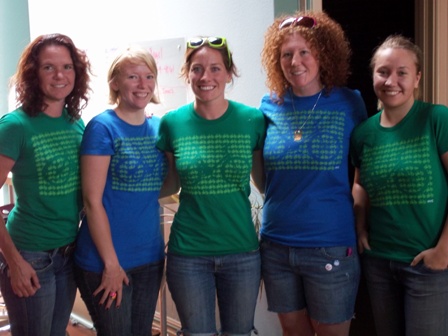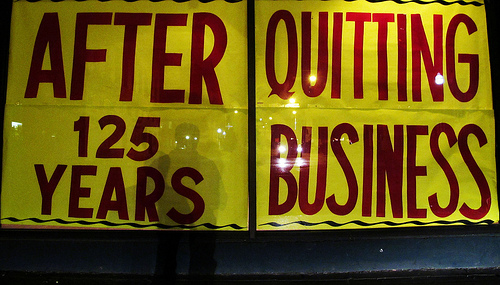By Jessica Hulse, Space Owner, Longmont, Colorado
“Build it and they will come” was recently quoted as a not awesome place to be, and I waved to the computer. “Yeah, I know, I thought.” Network, a coworking spot, opened on Feb. 14th in a family town called Longmont, CO. I myself have a network of peeps, but most of them are stay at home moms and have no need for a coworking spot. I knew this was what I wanted to do though, so I pushed on with no starting place to build a community as I don’t have a profession to build around. Luckily I have a favorable lease, a willing family that helped with the build out, and supportive friends who like to join me to help check Internet connections and to see if the fridge really is keeping the beer cold.
Opening day happened, and I waited for them to come. I sat by myself updating my website. So, I’m no longer waiting, I’m just building.
A documentary screening, blog class, tech group, motherhood workshop, business talk by a local author, photography class and bi-monthly jellies are all events Network has or is hosting within the first 3 months of opening, and all but two are free of charge. I’m planning events that inspire me, or classes that are things that I would want to learn about anyways. I love to meet the different people in all the different professions and it’s what keeps me excited to keep planning, building, and growing the community.
The documentary screening brought in professions such as doulas, nurses, and a couple film critics as the topic was maternal morbidity in Nigeria. The blogging class brought in newspaper writers, local bloggers, a nurse, local boutique owner, and a computer IT guy. An aerospace engineer stops in on a consistent basis, some programmers, web designers, SEO professionals, and more doulas come by. Each one is curious and supportive, and I’ve yet to have just one contact with an individual.
By hosting these different events, I’m able to expose myself and the space to a variety of different people. Even though coworking doesn’t necessarily resonate with certain industries, it does resonate with different personalities. It has been fun to see who clicks with the coworking concept and who can help spread the word.
At the most recent jelly I had two people come, a local store owner who needs some space to focus on blog posts and events she’s hosting, and a doula who is in the middle of growing an agency. One had come to the documentary screening, and one had a friend who had been there. They met one time and created three projects to collaborate on that will grow each of their businesses. It was inspiring to be part of that excitement, and I look forward to more of those meetings! At the blogging class, the presenter brought along her boyfriend who was just interested in coworking. He had helped a coworking facility get off it’s feet on the East coast and came walking through the doors claiming, “I LOVE COWORKING!” Even though he lives too far away to make use of the space, he has been a supporter through word of mouth and twitter which is huge!
Through hosting events, I’m building. I’m not just open. The people who join in the events get to know one another through twitter streams, they come to jellies, or join other events I’m hosting. They talk about what it would be like to start working from a coworking space. I have a conversation started, and that is an awesome place to be.




